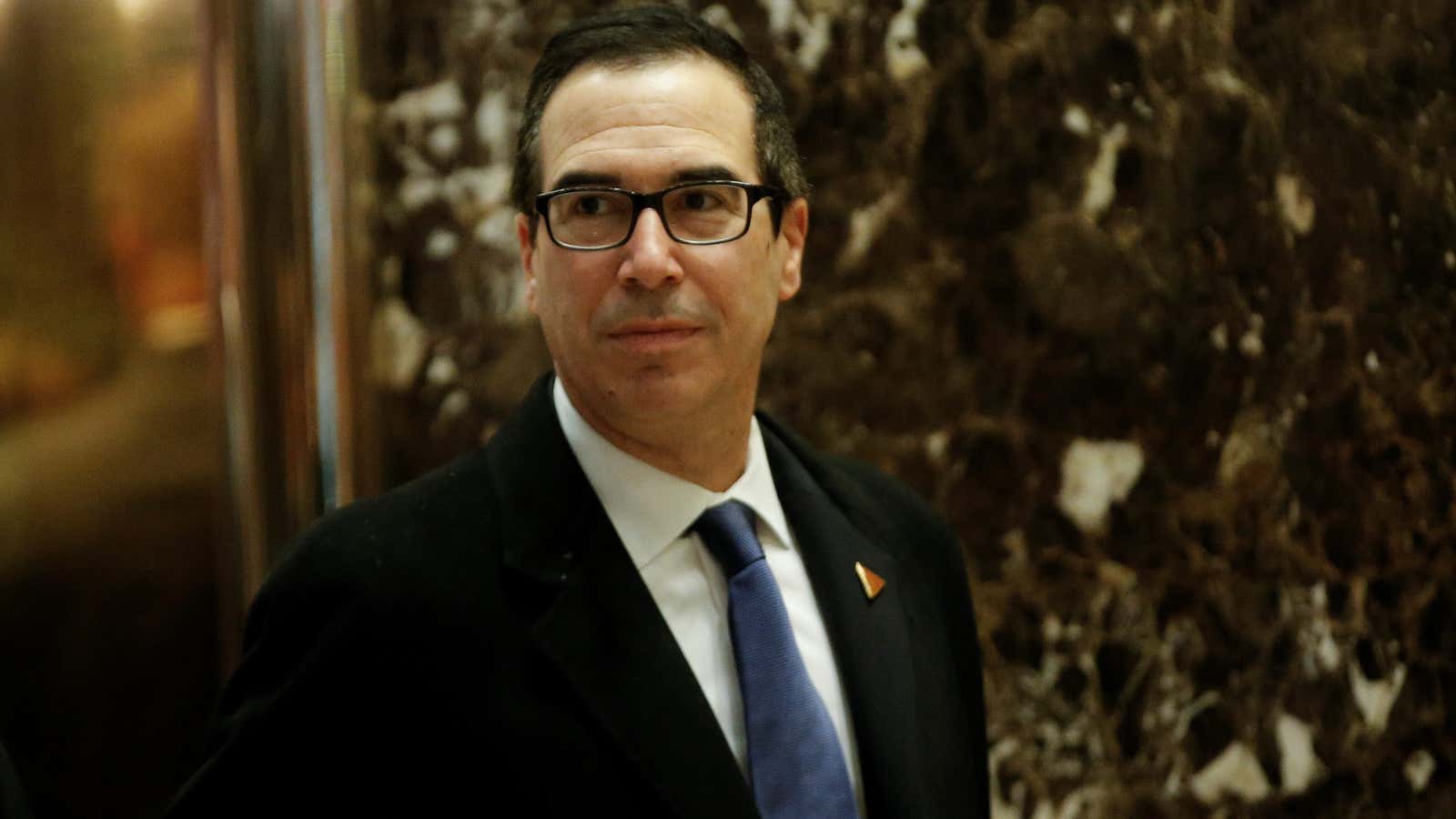Steven Mnuchin, Donald Trump’s choice as the next secretary of the US Treasury, is little known now. But he may wind up as one of the most powerful people to hold that role.
Assuming his nomination is approved by the US Senate, Mnuchin, a former Goldman Sachs executive, will take over an office granted sweeping new powers in the wake of the 2008 financial crisis, and will sit at the center of a complex web of agencies responsible for regulating banks and the US financial system. He’ll also play a key role in guiding US economic policy, serve as a unofficial liaison to the Federal Reserve, and potentially head negotiations with Congress over a proposed overhaul of the tax code.
Mnuchin could figure into Trump’s ambitious infrastructure plan
Trump has promised to spend more than half a trillion dollars to upgrade America’s transportation, water, telecommunications, and electricity systems. Paying for this will no doubt require bond issuance by the Treasury. And if Trump successfully establishes a new infrastructure bank to fund the improvements, as he has discussed, that could be located within the Treasury Department, adding to Mnuchin’s influence.
He will serve as a check on the Federal Reserve’s responses to financial emergencies
Many in Congress were alarmed by the Fed’s broad powers to bail out lenders during the financial crisis. In 2010, under the Dodd-Frank financial reform act, they clarified the central bank’s procedures for responding to crisis situations and required that the secretary of the Treasury approve emergency loans. That means the once-independent Fed will fall under the authority of Mnuchin, at least in one respect.
He will chair the Financial Services Oversight Council
FSOC, a new body created by Dodd-Frank, is made up of the heads of all the federal financial regulators, like the SEC and FDIC, and is charged with ensuring stability in the system. It is chaired by the Treasury secretary.
The council has the power to determine whether banks and institutions like hedge funds or insurance companies are “systemically important,” and if they are, to bring them under federal oversight. MetLife, an insurance company, successfully fought the systemically important designation in court and the Obama Department of Justice is appealing. Mnuchin could prove decisive in whether that appeal proceeds, and whether FSOC continues to play an aggressive role in policing the financial system.
He is well positioned to influence Trump
While some Treasury secretaries are chosen because of their stature in Congress or the business world, and have little history with the president, Mnuchin was the finance chair of Trump’s campaign, and presumably has his ear.
Indeed, his greatest potential source of power will be his relationship with the president, and the extent to which Trump values his voice among the numerous economic advisors in the White House.
“When you ask who is the secretary of the Treasury and what do they do, a lot of that answer depends on how well they get along with the president,” says Andrew Levin, an economist at Dartmouth who spent 20 years at the Federal Reserve.
Mnuchin might be particularly influential because Trump appears open to advice. “What’s pretty clear to me is that Trump is willing to listen, and it might be that his positions are easily and perhaps distressingly easily, swayed,” says Matthew Weatherly-White, the co-founder of the Caprock Group, an asset manager. “That could stand him in good stead, if he’s surrounded by the right people.”
